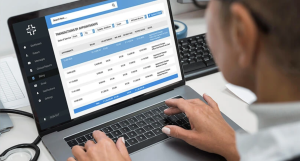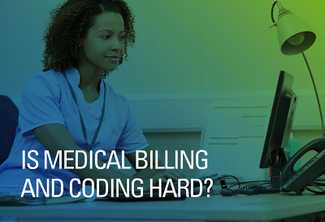Have you ever wondered if pursuing a career in medical billing and coding is a challenging endeavor? The field of medical billing and coding is renowned for its complexities and intricacies. This article explores the difficulty level of medical billing and coding, shedding light on the knowledge and skills required to excel in this profession. Whether you are considering a career switch or simply curious about the demands of this field, read on to discover the true nature of medical billing and coding and determine if it is the right fit for you.
Job Description

Understanding Medical Billing and Coding
medical billing and coding professionals play a crucial role in the healthcare industry. Their primary responsibility is to ensure accurate and efficient processing of healthcare claims and invoices. They are responsible for translating medical procedures, diagnoses, and treatments into universal codes that are used for billing and insurance purposes. This requires a deep understanding of medical terminology, coding systems, and insurance regulations.
Roles and Responsibilities
As a medical billing and coding professional, your role is multifaceted. You will be responsible for accurately assigning codes to medical procedures and diagnoses, ensuring that the claims are submitted correctly and in a timely manner. Additionally, you will need to interpret and apply insurance policies and regulations, as well as communicate with insurance companies to resolve any billing issues or disputes. Attention to detail, analytical skills, and an understanding of coding systems are essential for success in this role.
Education and Training

Academic Requirements
Obtaining a formal education in medical billing and coding is highly recommended to pursue a career in this field. While a college degree is not always mandatory, most employers prefer candidates who have completed a post-secondary program in medical billing and coding or a related field. These programs provide a comprehensive curriculum that covers topics such as medical terminology, anatomy, coding systems, insurance regulations, and billing procedures.
Certification and Licensing
Though not always a requirement, obtaining certification in medical billing and coding can greatly enhance your job prospects and earning potential. Various organizations offer certifications, such as the Certified Professional Coder (CPC) certification from the American Academy of Professional Coders (AAPC) and the Certified Coding Specialist (CCS) certification from the American Health Information Management Association (AHIMA). These certifications demonstrate your proficiency in medical coding and billing and validate your expertise to employers.
Training Programs
In addition to formal education and certifications, gaining practical experience through training programs is highly recommended. Many vocational schools, community colleges, and online platforms offer training programs that provide hands-on experience in medical billing and coding. These programs often include internships or externships, allowing you to apply your knowledge in a real-world setting. Utilizing these training opportunities can help you develop the necessary skills and gain valuable experience, increasing your employability in the field.
Skills and Knowledge

This image is property of thumbor.forbes.com.
Attention to Detail
Attention to detail is a critical skill for medical billing and coding professionals. The codes you assign must be accurate and specific, as any errors can lead to claim denials, delays in payment, or even legal issues. Paying close attention to the details of medical records, insurance policies, and coding guidelines is essential to ensure accurate billing and coding.
Analytical Skills
Medical billing and coding professionals are required to analyze complex medical records and translate them into precise codes. This requires strong analytical skills as you must understand the procedures performed, diagnoses made, and treatments administered. Analytical skills also come into play when reviewing claims, identifying discrepancies, and resolving billing issues.
Knowledge of Medical Terminology
Having a comprehensive knowledge of medical terminology is crucial to accurately code medical procedures and diagnoses. Understanding the specific terms used by healthcare professionals allows you to match them with the appropriate codes, ensuring accurate billing and reimbursement. Familiarity with medical terms also helps you communicate effectively with healthcare providers and insurance companies.
Understanding of Coding Systems
Being well-versed in coding systems, such as the International Classification of Diseases (ICD) and the Current Procedural Terminology (CPT), is essential for medical billing and coding professionals. These coding systems provide a standardized language for documenting and billing medical services. Mastering these coding systems allows you to accurately assign codes and ensure proper reimbursement.
Challenges and Difficulties

This image is property of d33wubrfki0l68.cloudfront.net.
Complexity of Medical Codes
One of the challenges medical billing and coding professionals face is the complexity of medical codes. There are numerous codes to learn, each with its own set of rules and guidelines. Staying updated with changes in coding systems and regulations is essential to perform the job accurately and efficiently.
Constant Updates and Changes
The healthcare industry is constantly evolving, and with it, the rules and regulations surrounding medical billing and coding. New codes are introduced, existing codes are revised, and insurance policies change. It requires ongoing effort to stay up-to-date with these changes, attending conferences, workshops, and continuing education programs.
Insurance and Billing Regulations
Navigating insurance and billing regulations can be challenging for medical billing and coding professionals. Each insurance company may have its own set of policies and guidelines, making it necessary to understand and comply with various requirements. Keeping up with changes in insurance regulations is crucial to ensure accurate and timely reimbursement.
Time Management
Medical billing and coding professionals often have multiple tasks and deadlines to manage. This requires effective time management skills to prioritize and complete tasks efficiently. Meeting deadlines for claim submissions, resolving billing disputes, and staying organized amidst a high volume of paperwork can be demanding.
Work Environment

Healthcare Facilities
Medical billing and coding professionals often work in healthcare facilities such as hospitals, clinics, or medical billing companies. These environments provide opportunities for collaboration with healthcare providers, access to medical records, and direct communication with insurance companies.
Remote Work Opportunities
With advancements in technology, remote work opportunities have become increasingly common in the field of medical billing and coding. Many medical billing companies and healthcare organizations offer telecommuting options, allowing professionals to work from home or other remote locations. This flexibility can greatly improve work-life balance and reduce commuting time.
Work Hours and Shifts
The work hours and shifts for medical billing and coding professionals vary depending on the specific facility or organization. In hospitals and clinics, they may follow regular business hours. However, medical billing companies that serve clients nationwide may require employees to work evening or night shifts to accommodate different time zones. Flexibility in work hours is often desirable in this field.
Job Outlook and Opportunities

Growing Demand
The demand for qualified medical billing and coding professionals is expected to grow in the coming years. As the healthcare industry expands and becomes more complex, the need for accurate and efficient billing and coding practices increases. The aging population and the increasing focus on electronic health records further contribute to the demand for skilled professionals in this field.
Career Advancement
Medical billing and coding offer various opportunities for career advancement. With experience and additional certifications, professionals can progress to supervisory or managerial roles. Some may choose to specialize in a specific area, such as professional fee coding, outpatient coding, or compliance auditing. Advancement opportunities vary depending on the size and type of healthcare facility, as well as individual skills and ambitions.
Specialization Opportunities
Medical billing and coding professionals have the option to specialize in specific areas of coding or healthcare practices. Specializations can include coding for specific medical specialties, such as orthopedics or cardiology, or focusing on specific coding systems, such as the ICD or CPT. Specializing in a specific area can enhance your expertise and increase your marketability in the field.
Salary and Compensation

Average Salary Range
The salary range for medical billing and coding professionals can vary depending on factors such as experience, education, certifications, and geographical location. According to the U.S. Bureau of Labor Statistics (BLS), the median annual wage for medical records and health information technicians, which includes medical billing and coding professionals, was $44,090 as of May 2020. However, salaries can range from around $28,000 to over $71,000 per year.
Factors Affecting Compensation
Several factors can influence the compensation of medical billing and coding professionals. These factors include the level of experience, education, certifications, and the complexity of the coding required. Additionally, the geographical location and the type of healthcare facility, such as hospitals or physicians’ offices, can affect salary levels. Generally, obtaining higher levels of education and certifications can lead to increased earning potential.
Job Satisfaction

Job Stability
Medical billing and coding professionals often enjoy job stability due to the increasing demand in the healthcare industry. The need for accurate and efficient billing and coding practices ensures a steady demand for professionals in this field. With ongoing advancements in healthcare technology, the role of medical billing and coding is expected to remain essential in the years to come.
Helping Others
Working in medical billing and coding provides an opportunity to contribute to the healthcare system and indirectly help patients. By ensuring accurate coding and billing practices, professionals play a vital role in ensuring that healthcare providers receive proper reimbursement, allowing them to continue providing quality care to patients. This sense of contributing to the well-being of others can be fulfilling and rewarding.
Variety in Tasks
Medical billing and coding professionals often enjoy a variety of tasks within their role. From analyzing medical records to communicating with healthcare providers and insurance companies, each day brings new challenges and opportunities to learn. This variety can make the job engaging and prevent monotony, keeping professionals motivated and satisfied in their careers.
Advice for Success

This image is property of blog.scitraining.com.
Continuous Learning
In the field of medical billing and coding, continuous learning is essential for success. Given the constant updates and changes in coding systems, insurance regulations, and healthcare practices, staying up-to-date is crucial. Engaging in continuing education programs, attending conferences and workshops, and seeking opportunities to expand your knowledge and skills will help you stay competitive in the field.
Networking
Building professional connections and networking within the healthcare industry can open doors to new opportunities. Attending industry events, joining professional associations, and engaging with peers in the field can help you stay updated with industry trends, gain new insights, and potentially secure job advancements or referrals. Networking can also provide a support system and a platform for sharing knowledge and experiences.
Gaining Experience
Gaining practical experience is vital in the field of medical billing and coding. While education and certifications provide a strong foundation, hands-on experience through internships, externships, or entry-level positions is invaluable. Working in a real-world setting allows you to apply theoretical knowledge, develop problem-solving skills, and gain exposure to the challenges and complexities of the job.
Conclusion
Medical billing and coding is a challenging yet rewarding field that plays a critical role in the healthcare industry. It requires a solid understanding of medical terminology, coding systems, and insurance regulations, as well as excellent attention to detail and analytical skills. Despite the challenges, continuous learning, networking, and gaining practical experience can lead to a successful and fulfilling career in this dynamic field. With growing demand, opportunities for career advancement, and the satisfaction of helping others, medical billing and coding offers a promising career path for those willing to invest the time and effort.
